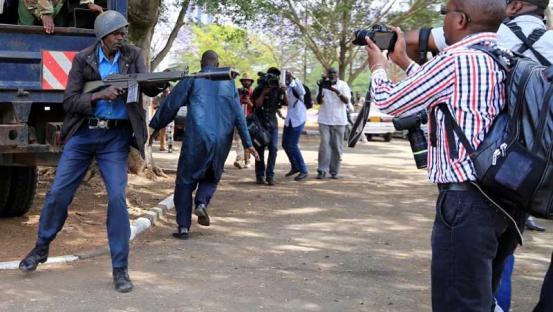×
The Standard e-Paper
Fearless, Trusted News

Hours after the results of the presidential elections were announced, when the police were on their brutalisation spree, a certain group of Kenyans started complaining about local media.
Their collective grouse was that local journalists were not reporting what innocent Kenyans were going through at the hands of the police, who are supposed to uphold the law, and were instead airing children’s shows.